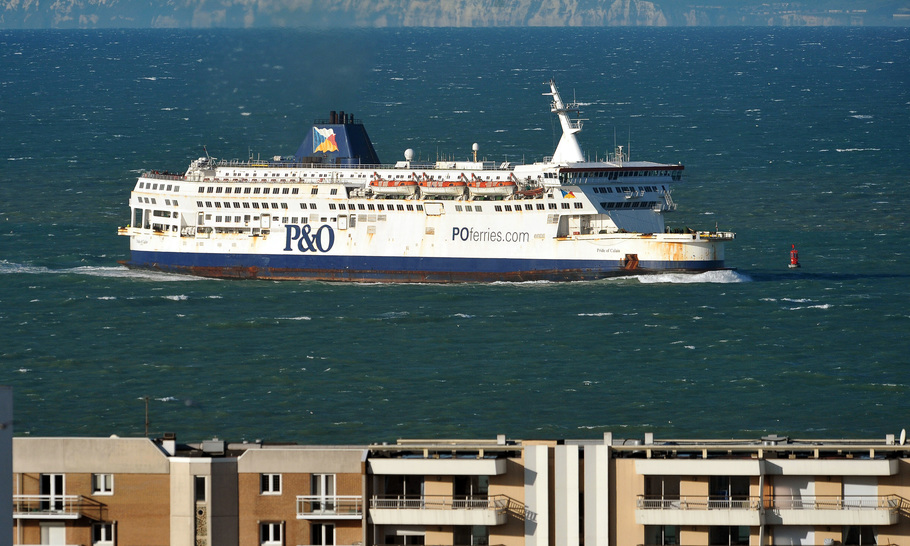No Deal might be a blessing in disguise

PHILIPPE HUGUEN/AFP/Getty Images
Time is running out. It looks as though the Withdrawal Agreement is not going to be passed by Parliament even with the “clarifications” promised by the EU. Nor does it seem likely that there is going to be a majority for either the Norway option or a second referendum. In these feverish times, it is impossible to predict what may then happen, but the chances of our leaving the EU on 29th March 2019 without any kind of comprehensive deal being in place must be increasing. The conventional wisdom is that this would be a disaster, but for a variety of reasons it may well not be.
First, the vacuum thus created is likely to be filled by a number of sectoral arrangements to deal with obvious problems which all sensible people on both sides of the Channel will want to avoid. Nobody wants to see aircraft not flying, lorries stacked up at Calais or Dover, Eurostar not running, or trade between the UK and the EU27 grinding to halt. Of course, there will be some disruption, but it seems reasonably likely that ways will be found to keep most services between the UK and the EU27 in manageable form. Life will go on.
Will trade between the UK and continent continue much as before? Very probably it will. Once the UK is no longer in the EU, the paperwork procedures at the border will become a little more complicated but not much. HMRC has made it clear that, at least during the initial stages, priority will be given to getting goods speedily through the border rather than delaying them with inspections. There may be some reduction in traffic initially because of fears of hold-ups but once it becomes clear that these are not materialising there is no reason to believe that the flows of goods each way will fall off, especially if ways are found to avoid tariffs being reintroduced.
Even if they were, it would not make that much difference. The average tariff on industrial goods is about 2.5%. If agricultural products are included, the average rises to about 4%, which is still not an insuperable barrier. In fact, however, it is legally possible, under World Trade Organisation rules, for countries to avoid introducing tariffs altogether in the sort of circumstances in which we may well find ourselves at the end of March 2019. The UK would certainly favour this being done, on a reciprocal basis, and as the EU has a massive trade surplus with the UK, it would clearly be to their advantage as well as ours for this course of action to be followed.
Of course, not all our exports are goods. Rather under half are services, including financial services provided largely by the City where the EU may cause difficulties, for example by trying to insist that euro-clearing is done within the Eurozone. These may well be offset by more sympathetic regulation from the UK than is likely to be experienced from Brussels if we were to remain in the EU.
Will the economy grow more slowly outside the EU? Much depends on the policies pursued by the UK government and on world developments. Leaving aside the disputed assumptions on which the negative projections produced by the Bank and the Treasury rely, at best they are snapshots of what might happen on a “ceteris paribus” basis. They make no serious allowance for the kind of policies which any sensible government would make to offset any adverse trends which might materialise. These might, incidentally, originate in the EU itself as a result of the instability of Italian banks, tensions within the Eurozone or another migration crisis.
So, would no comprehensive deal between the UK and the EU27 being reached before 29th March 2019 be a disaster? It would very probably be a rougher ride in the short term than other options would produce, but it would also open up the possibility of negotiating the Canada+++ free-trade deal which the EU has offered to us several times. The UK would be out of the Single Market, the Customs Union, the CAP, the CFP, and free to negotiate its own free-trade deals. We could continue to co-operate with the EU27 on an inter-governmental rather than a membership basis in all the ways in which it is in our mutual interest to work together.
The problem with the Withdrawal Agreement or any variant of it is that it buys short-term predictability and security but at huge cost in future years. Leaving without deal looks riskier in the immediate future but may well produce a more stable eventual outcome. A future forced upon us unwillingly may turn out to be a blessing in disguise.





